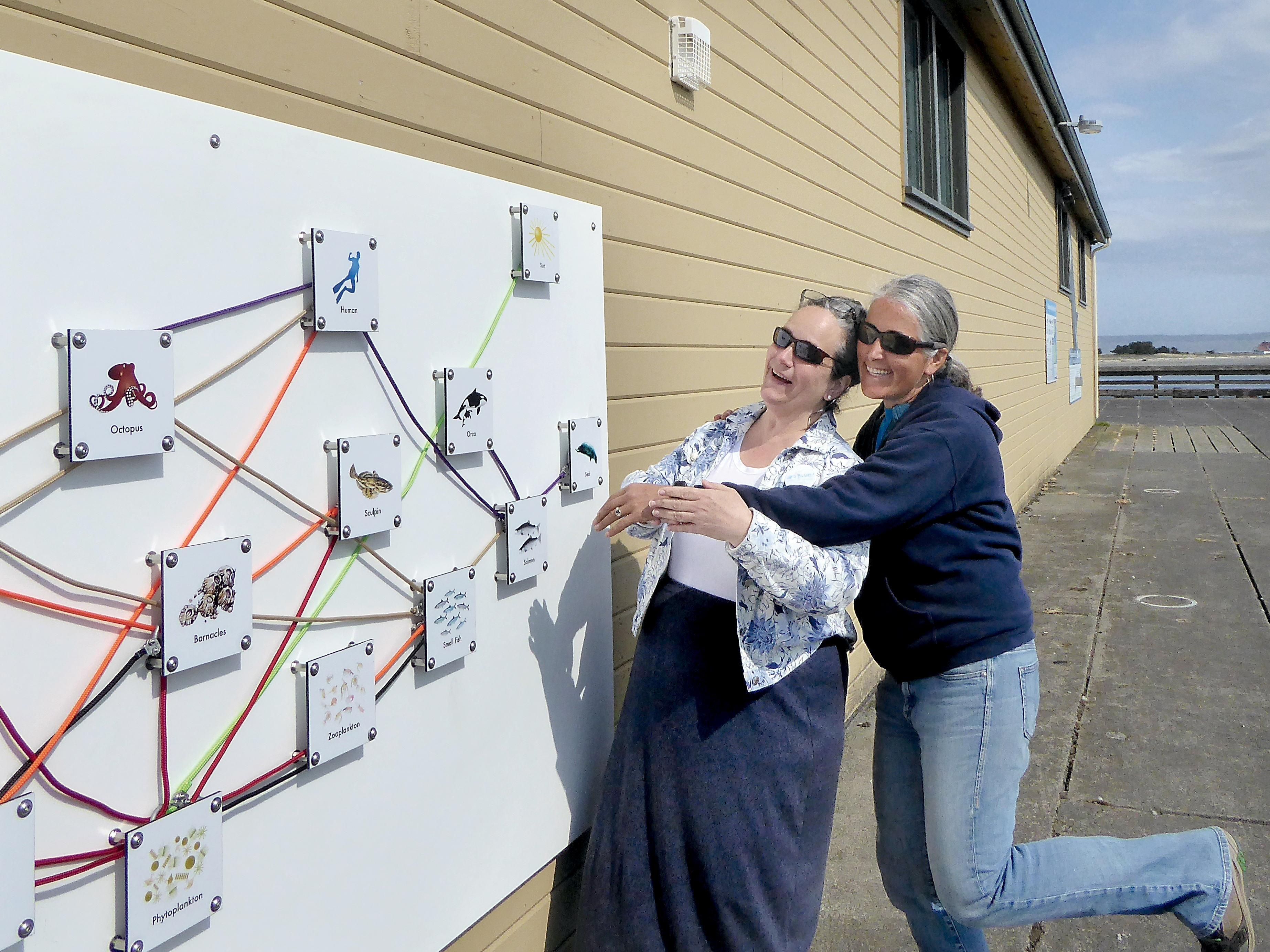PORT TOWNSEND — The Port Townsend Marine Science Center will open a new series of interactive exhibits to help people understand their potential role in ecological issues.
Go Blue is a series of small displays along the pier of the marine science center at Fort Worden.
“We wanted to bring some of our messages outside,” said Executive Director Janine Boire.
“Go Blue is all about helping people understand how the ocean sustains our lives and how we can take that knowledge to the next level and turn it into action.”
The new exhibits are now in place but will open officially to the public Friday when a beach cleanup will take place from 1 p.m. to 4 p.m.
The cleanup is co-sponsored by the Food Co-op. Participants are asked to report to the co-op, 414 Kearney St., anytime during the day to receive trash bags and assignments of specific beaches for cleanup.
The trash, when gathered, is to be returned to the co-op, where participants will receive food vouchers.
With Go Blue, the marine science center is refocusing its message to reflect its role as one cog in the ecological awareness machine, according to Chrissy McLean, marine program coordinator.
“This is like the civil rights movement, where all these people came together saying they want things to be different,” McLean said.
“That’s what we are doing here, and we are talking about the steps people can take to get there.”
The marine science center has operated two exhibits at Fort Worden, a natural history museum and a marine exhibit with an interactive “touch tank” where visitors are allowed direct contact with local invertebrates.
With its Go Blue series of exhibits, the center will provide small insights about the large ocean, organizers said.
In one case, people are asked to stand on blue footprints facing the beach, take a cellphone picture, date it and send it to the center to create a video timeline of the beach area.
There is also a “food web” containing pictures of several sea animals connected by rope.
Pull on one, and you can see how many animals are connected to that particular species.
Boire said the Go Blue endeavor dives deeper into the global issue of ocean health; reveals the human impact of climate change, plastics and toxics on marine ecosystems; and provides choices for what community members can do to address it in their own backyard.
Boire said the center is leading a campaign to inspire the community to take part in collective solutions.
“The whole point is to inspire collective action in our community and participate in collective action internationally,” she said.
“This forms a really powerful network that has arms everywhere.”
Boire said increased ocean acidification caused by increasing levels of carbon dioxide in the atmosphere affects each animal differently, with jellyfish and those at the bottom of the food chain feeling less impact.
“With changes in the environment, some animals will do better,” Boire said.
“Animals higher on the food chain will be more stressed — such as resident orcas who are starving because of the dramatic reduction in salmon in the last 100 years or so,” she said.
As the environment changes, the results as to which species will thrive or suffer cannot be predicted, Boire said.
“It’s a big gamble,” she said.
People can take action to help buffer the changes, according to McLean.
“Not everyone will go out and protest although some will do that,” she said.
“Others may work together to find some more technical solutions.”
Spring hours for the marine and natural history exhibits are from noon to 5 p.m. Fridays through Sundays. Longer summer hours will begin June 5.
Admission is $5 for adults, $3 for those 6 to 17 and free for children 5 and younger and members of the marine science center.
For more information, call 360-385-5582 or see www.ptmsc.org.
________
Jefferson County Editor Charlie Bermant can be reached at 360-385-2335 or cbermant@peninsuladailynews.com.
